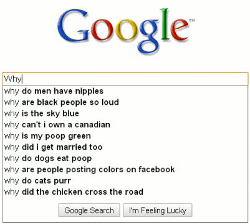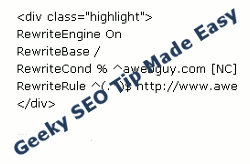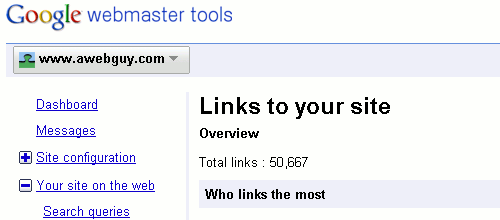
My optional title was “Why Do We Blog? (or Not): A Question Every Business Should Ask”. I just thought I’d share that upfront.
I believe my considerations about blogging can be applied to many industries, and I’ll even have a little humorous fun along the way. If your eyes are tired, just push the play button for the audio version.
As I recently took a seven day break from blogging, a question that has been rattling through my head is “Why do I blog?” The question is not on my mind because I don’t want to do it, although that happens, too. The question is more a matter of focus and purpose. If I know why I am doing it, the purpose is enhanced, and the message becomes clearer. Just like any other business effort, there should be a good reason for it. Periodically asking the question of why I blog keeps things making sense. Similarly, I think every business should ask this question of why they do, or do not blog.
I decided there would be no better place to put my thoughts about this in writing than right here … in a blog.
Why Would Anybody Do This?
I wouldn’t continue writing this blog if I didn’t have good reasons. I also would not recommend it to any person or company without a good strategic purpose for it. I can cite a lot of good reasons to blog, but wasting hundreds of hours and gallons of coffee are not among them.
It can be really punishing to write a blog. It takes a lot of time … many hours. In the audio version of this article, I share some of what I put into each article, but let’s just say that it requires a lot of effort.

Once any new blog article is sent out into the wild, the real punishment comes calling. It comes in the form of doubts. Even with a good track record, it is still easy to let the common doubts creep in. “Will they like it?” … “Will they comment about it, and let me know what they think?” … “Will they share it with others?” … “Did I just waste all that time?!”
To say the least, if you are not committed to the task of blogging, it is probably a bad idea. Taking up compulsive body piercing or volunteering as a crash test dummy may be a lot easier.
Here Are Some Answers to Why I Blog
As I have expressed, blogging is not simple. In the case of a business blog, if it is ever to become a success for the business, it will not be an easy task. If you don’t believe anything else I say, please trust me that producing a blog is a lot different than producing a successful blog. It takes a lot of creativity, and a lot of work. In nearly every instance, somebody will lose sleep over it!
So, here are some reasons I blog, and they are in no specific order. I hope you will be able to apply these to how and why you have a blog, or otherwise consider how and why you should.
Blogging Keeps Me Sharp
There is never an instance when I write a blog article that does not provide reminders of other articles I have written. When I am reminded of lessons I have learned and shared, the lessons become fresh again. I have found it very convenient to have hundreds of articles in my blog archive, and not just for others. It often becomes very useful reference material. Yes, it is true … we can actually even teach ourselves!
Blogging Improves My Industry
When I write something that becomes useful to others in my industry, it opens communications with my peers, and helps us each to learn. When we each perform better work, it adds just a little more credibility to the value of marketing. As it applies to search engine optimization and social media marketing, there is a lot of confusion. There is a tremendous value in collaboration and information sharing that should not be overlooked.
Giving a boost of thought to my fellow marketing professionals, whether creatively, technologically, mathematically, or otherwise, is good for them, and good for me.
This can be applied to many other industries, if you give it adequate effort.
Blogging Makes Search Rankings Nuclear!
Search engines do not list websites in search results just because they are pretty. It happens because the words on the website logically match what somebody is searching for. The ones at the top of a search result (just below the ads) are there because they are highly relevant to the search, and because there are a lot of links from other websites that vouch for their relevance. There is really no better way to achieve that mix of text content and links from other websites than a blog.
Blogging Shines a Light on Crooks
You may not have crooks in your industry, but I’ll bet there are still good reasons to help people understand what sets you apart from the rest.
Like any industry where there is a lot of confusion and a potential to earn “easy money”, the online marketing industry is filled with crooks. Attorneys and car salespeople should love the Internet marketing industry, because it takes the heat off them. These days, the cruel jokes about sleazy attorneys are about sleazy Internet marketers.
All attorneys are not evil. Every company needs an attorney at some point. There are also good car salesmen. Most people would not have a car to drive without one. The same holds true about marketing, but it can be challenging for industry outsiders to find which are good or evil. This is another reason I blog.

I will not save everybody, but I can help starve a few of the cockroaches, and that makes it a lot more comfortable for me to keep working hard.
Seizing opportunities to help others become more aware of industry issues, and doing so with integrity and usefulness can be an asset to nearly any industry, don’t you think?
Here are some examples of my efforts to help educate people. There are hundreds more like them in my archive, and I put my stamp of approval on every one of them.
- 7 SEO Lies: How to Know When the SEO is Lying
- Good SEO vs. Bad SEO: How to Tell the Difference
- Bashing SEO and Social Media Experts: Humor or Hazard?
- Social Media ROI, Marketing Cost, and the Willingly Confused
- “How Much Does SEO Cost?” is The Wrong Question
Blogging Boosts Credibility
Blogging is an excellent tool for establishing credibility in a given area of business. It shows where you stand on a topic, and it allows others the opportunity for due diligence. I have often expressed that if somebody wants to know if I am credible in my field, they should spend some time on my blog.
When I think of my blog for business development, I look at it a lot differently than some. It will vary in every industry, or at least it should. Because I seek a very unique client, the kind who will implement a marketing strategy (as opposed to just tactics), establishing industry credibility comes long before chasing a sale.
Having a lot of useful information on my blog is a good point of reference for that ideal client to determine whether I know my work. It is also where I establish two very important things. Those are ability and integrity, and I look at these as “I can do it”, and “I will do it”. They each scream credibility.
Whatever the case with your industry, I am confident that blogging can emphasize topical credibility. If not for you, for your competitors.
Blogging and Narcissism: We All Want to Be Awesome!
Blogging is fun. I love how it lets me express my personal brand. Some days it is with my tongue-in-cheek ornery tone, and other days I can be quite inspirational and thought provoking. It just wouldn’t feel the same without having some fun. If you don’t have a sense of humor, stop here! If you take it too seriously, you will probably hate me, and the last thing I need is another stalker.
I have heard people talk about social media being popular because it suits people’s egotistical needs, so I’ll play on that! I suppose it makes some sense, though. After all, who wouldn’t want to be popular, and how could it get any better than having your own blog? So, here is the secret answer about blogging that you really wanted to hear. It’s for the egotism!
Sure, I probably made it sound all great and useful to write a blog, but there is more to it. The real truth is that it provides a gushing river of self-worth. I always really wanted to be cool. Blogging makes me cool, because I get all those people to think about it, talk about it, tweet about it, facebook about it, and share it with their friends from around the world. In spite of all the hard work and torment it can involve, I can’t get enough of it. It’s like crack cocaine.
Maybe it sounds totally nuts, and maybe my mother didn’t hold me enough as a child, but I get a huge rush by being listed at the top of search engines for hundreds of thousands of searches. It’s not just for the money, either. Call me narcissistic if that makes you feel better, but I really love it that squillions of people per month are clicking on my literary works. That should be worth a free shot of tequila at any bar … anywhere!
There are a lot of services out there to tell me how awesome my blog is, and measure me up against others. Oh, I know you want a display, so here is a graph of my blog’s estimated worldwide traffic ranking compared to the top television station in my region. It is our local CBS affiliate, and I spank them like an ugly baby.
They have a whole staff of news, weather, and sports people blogging, and hundreds of thousands of television viewers. They even have a General Manager to tell people about his dog pooping (see image). No kidding! The thing is, they don’t have awesomeness … they don’t have my Murnahanism.

Now isn’t that fun?! I’m thinking I should get some free shots out of that, for sure! Who cares whether it is accurate or useful? It strokes my ego, and that’s what I’m after!
Website Grader ripped me off when they graded me at 99. I’m sure there was a mistake! Twitter Grader scores me at 100 … yeah, One Hundred, but I think I can persuade them to create a “101” score just for me!
Another service says I’ve got “Klout”. Check this out … they even call me a “Celebrity”! Sure, I downplay the importance of Klout, but deep down, I’m really shallow. I know I’m awesome, and I think you and all of your buddies should know it, too! So, I blog … a lot!

Better than all that fluffy pseudo-awesomeness … I love to feel that rush of popularity when I see all the reader comments, and people sharing my work on a massive scale. It is proof that I exist!
I joke about it, but the real truth beyond the ornery joking is this: As long as I know my work helps others, I am happy to keep doing it. The fact that people keep sharing my work and help me feel a little pat on the back is great. The good fortune that the numbers add up and it produces a profit justifies the hard work. All of these things together hold a lot of meaning for me.
It means I’m doing it right!
I limit how much I blog about blogging, because it is just one piece of an online marketing plan. However, since it is such a valuable asset to a social media campaign, and to search engine rankings, it deserves a reasonable share of the attention. That’s why I have written about good reasons to blog, explained benefits of blogging, shared a lot of information about blogging tools, and even how to integrate Facebook blog comments.
Photo Credits:
Why, Arizona by Ken Lund via Flickr
Why? by Joseph Vasquez via Flickr
Hand grenade training by The U.S. Army via Flickr
Podcast: Play in new window | Download





